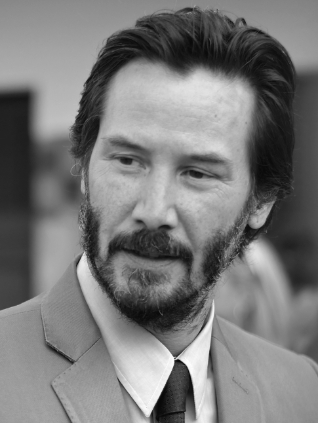The title is not a mistake. The explanation is at the bottom of the post.
By January 31st of each year, over 50% of people have already quit some or all of their New Year’s Resolutions.
Are you one of them?
Like millions of people around the world, do you resolve to exercise more, eat less, manage your money better, or get started on that Bucket List?
Do you beat yourself up when you fail, blame your failure on a lack of ‘willpower’ or motivation and then repeat the cycle all over again the next New Year’s Eve?
Even worse, have you given up on making resolutions altogether?
If the answer to any of these questions is “YES!”, here is a solution.
Simple and Specific: Principles
When it comes to keeping resolutions and changing behaviour there is one principle that you need to understand, the EASIER something is to do, the more likely you are to do it. The second principle is, the more specific the action you take, the easier it is to repeat.
Resolutions like ‘exercise more’ or ‘eat less’ are not specific enough. Your mind exhausts itself on all the possibilities of how you might exercise more, causing analysis paralysis, so you give up.
“I will put on my walking shoes at 5:30 pm each day” is both simple and specific. Whether you walk around the building, around the block, or up and down two flights of stairs, you feel successful at exercising and are more like to continue doing it daily. Putting on shoes then driving 10 miles to walk in your favourite park increases the chance of failure. Why? Once in your car, it’s easier to just go home or stay on the couch.
We can apply these same principles in other areas as well. Here are two examples.
Simple and Specific – Money Management
One of the most common resolutions made every year is “Spend less money/save more money”. Why does this New Year’s resolution have such a high failure rate? Most people who fail at this have no idea where their money goes. Advertising to encourage ‘Impulse Buying’ has become an art. Buying things you don’t need has become a hobby, but you don’t know how to get control of the problem.
There are two parts:
- Get paper, pen and a small paper bag. Collect all of your paper receipts for one month and put them in the bag. Gas, coffee, parking, shoes, lunch receipts go in the bag. If you use a credit/debit card write the items purchased on the notepad. At the end of the month, use paper and pen to add up all of your purchases. If there is a yearly bill (car insurance, property tax, etc) divide the amount into twelve and add that as well, and deduct from whatever income you have. Look at the figure and laugh or cry.
Now you know where your money is going, and what needs to be cut back or increased.
2. Repeat the process next month, to verify that numbers from the first month were correct. From that point on, just budget and pay your bills.
Total time needed: 90 minutes for the initial setup. With monthly practice, you’ll finish in 30 minutes or less.
Yes, this works on a computer or tablet and yes you can buy software/apps, but they are not simple enough.
Important Note: When you finish budgeting, give yourself a big smile and two thumbs up. Your brain will associate managing money with being successful, so you will keep doing it. Here are two blog posts that further explain:
How To Take Charge of Your Personal Finances
A Smarter Way To Pay Your Bills
Simple and Specific – Avoid Anxiety
If you have been diagnosed with clinical depression or anxiety, follow your doctor’s advice. The layperson’s advice of “Stop being depressed” or “don’t worry so much” is not simplistic, it’s stupid and dangerous.
Be aware that you can control some of your anxiety. The simplest way is to reduce your social media usage. Professor Cal Newport says that “Social Media is dead, they just don’t know it yet.”
Honestly, it needs to be killed.
Studies have shown that social media wreaks havoc on your mental health by amplifying the impact of the loudest, dumbest people in your network.
Here are my methods to stop ‘doom scrolling’ on my phone and computers.
My phone has a “Digital Sundown” which automatically makes the screen black & white between 10:00 am and 12 midnight. You can do this through the “Settings” menu.
Google Chrome extensions. I use two for blocking various sites on my personal and work computers for hours at a time.
Try these techniques out and measure how you feel after one month.
Here is a post that further explains how to reduce your anxiety level.
How To Avoid Anxiety: The Keanu Reeves Method
Conclusion
Small, habitual actions are more likely to help you achieve lifetime success than the ‘Grand Gesture” or Big Goal. Simple and Specific succeed because they are easier to manage physically and mentally.
Well being is realized by small steps but is truly no small thing” – Zeno
Good Luck and all the best in 2022.


Sorry for the delay in getting back to you on this, but it is not too late! You make a few very good points here, and I would like to make comment on a couple of them.
Regarding money, or the lack if it for most. I was bought up in a very frugal family in the 1950’s, which means I am very used to living on very little. The trouble with most of us these days is we continue to spend money on our wants, rather then concentrating on our needs. If you budget for your needs first, then saving a little amount for a rainy day, you can then spend some money on your wants. It is all a matter of priorities really, but few people are able to resist the urges to spend too much money on wants.
Regarding anxiety, I think it would help if more people were not only honest with others, but honest with themselves. Making decisions and judgements based mainly on wishes and wants will definitely lead to disaster. Being a realist and working on your life priorities and working towards them will assist in minimizing anxiety. Setting a realistic goal and taking small steps to get there will also help.
During my earlier presentations on goal setting, I regularly used a ladder as an example. We have to take it one step at a time, or else we will never get to the top. Each step is the challenge in front of you. not the total challenge at the top. Achieving that final goal will be far more likely this way.
Thanks for your well thought out post.
Regards, Phil
Thanks for your thoughts on this issue. Some of our present anxiety, I think is induced by our media consumption. We expose ourselves to the loudest, dumbest people in our group and all of their followers. Of the various things we have to learn about in school, money isn’t one of them, which is sad.
Having said all of that, I deeply believe that the best way to approach resolutions is with small, simple, and specific steps.
All the best in the New Year.